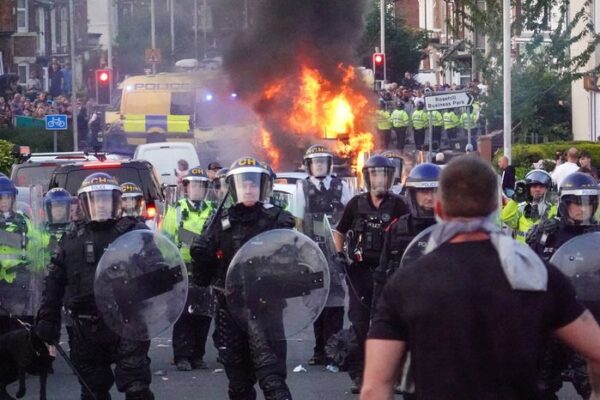We are not interested in telling Muslims how to vote – we think you deserve more credit than that. But it is our job to encourage all political parties to respect the issues that matter to Muslims.
We are not interested in telling Muslims how to vote – we think you deserve more credit than that. But it is our job to encourage all political parties to respect the issues that matter to Muslims.
This week the Muslim Council of Britain – one of the largest umbrella organisations representing British Muslim communities – has released its election pledges.
We are not interested in telling Muslims how to vote – we think you deserve more credit than that. But it is our job to encourage all political parties to respect the issues that matter to Muslims.
We don’t just speak for Muslims – we let Muslims speak for themselves. Our election pledges are based on extensive surveying of our affiliates and, asking Muslims what they really care about and what they want political parties to prioritise in this election.
Their responses were as varied as the Muslim communities we work with. The racism and Islamophobia that we continue to see across different political parties was mentioned a lot, but so was elderly care, education, and criminal justice issues.
It’s never been more important for Muslims to speak up and make their voices heard at the highest levels. Many in Westminster want to make this election all about Brexit. This is clearly one of the key questions of this campaign, but for Muslim communities it is about much more.
As well as pursuing Muslim-centric interests like religious liberty and safety at places of worship, many Muslims are thinking about protecting the futures of their ageing family members and making sure their children have a high quality and balanced education.
Brexit was not mentioned nearly as much as these issues when we spoke to Muslim communities, perhaps because whatever the result of the Brexit saga, life will go on for Britain’s Muslims – and it will continue to pose its challenges.
The stakes are clearly high in this election – there are seismic shifts across the political spectrum, with shifting alliances and pacts that make it harder than ever to know who to vote for. In this climate, a values-based approach, where British Muslims think about what is important to them and then study their options to see who speaks for them, is perhaps the best way of engaging.
And engage we must. Although many Muslims are politically literate or even active, this does not always translate into voting. A parliamentary report found that minority voters are half as likely as the general population to vote. This may be even lower in some Muslim communities, since our Westminster-centric political discourse inevitably excludes the varied Muslim communities up and down the country.
This is to say nothing of the ongoing Islamophobia scandal in the ruling Conservative party, and Boris Johnson’s refusal to hold an enquiry into it. This is just an example of the climate of intolerance and discrimination against different minorities that we see across the political spectrum.
I urge all my fellow Muslims to hold their local candidates to the pledges below, and work for the good of their communities – and of Britain.
The pledges are as follows:
Tackle Racism and Islamophobia
Adopt the APPG on British Muslim’s definition of Islamophobia across the UK, defining Islamophobia as being rooted in racism and as a type of racism that targets expressions of Muslimness or perceived Muslimness.
Religious Liberty
Defend the right of Muslims – and people of all faiths – to express their faith, be that in religious clothing, food, and reasonable accommodation of religious observance.
Engagement with Muslim Communities
Commit to proactively engage with a broad and representative spectrum of British Muslim communities to ensure a plurality of views are being considered.
Safety at Places of Worship
Safeguard visitors at places of worship, by providing support and funding for any Muslim institutions to implement safety measures, in line with other faith groups.
Effective Health and Elderly Care Services
Focus policy-making on ensuring equity for all sections of society and recognising the gap in health and wellbeing standards, particularly between older and elderly Muslims and the general population.
Refugees
Encourage the resettlement of refugees across the UK, working with communities to address and tackle issues faced by refugees resettling in Britain.
Full Economic, Social and Public Participation in British Life
Enhance democracy by enabling increased participation of minorities and women in politics and public life, addressing the underlying socio-economic challenges in place.
Criminal Justice
Address the disparity of treatment and outcomes for BAME people within the criminal justice system. Rebuild trust with Muslim communities by ensuring all counter-terror legislation is evidence-led, non-discriminatory, and open to evaluation.
Equality in Education
Ensure a fair approach to educational provision for all children, with a syllabus that reflects the diversity of communities, with appropriate parent involvement.
Ethical Foreign Policy
Support a binding recognition of Palestine as an independent and sovereign state, and address human rights abuses abroad, including in Kashmir, Xinjiang, and Myanmar.





